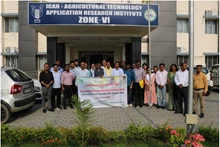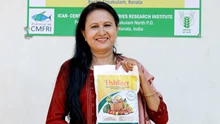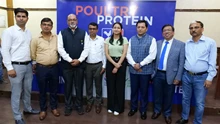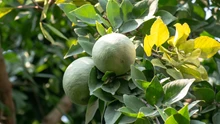
Rakesh Swami, Group President (Corporate Affairs) at Godrej Industries Limited and Associate Companies, recently led a delegation to Punjab Agricultural University (PAU), Ludhiana, to explore potential partnerships aimed at promoting sustainable agricultural practices and enhancing the livelihoods of cotton farmers in India. The meeting saw a high-profile gathering of PAU officials, including Vice-Chancellor Dr. Satbir Singh Gosal, along with cotton breeders, textile experts, and entomologists.
Swami began the discussion by emphasizing Godrej’s long-standing commitment to sustainability, highlighting initiatives such as energy efficiency, water conservation, and waste management. He pointed out that these strategies are not just a corporate choice but a necessity for businesses today, as they navigate disruptive changes while ensuring a sustainable future. Summarizing the company’s successful projects that have benefitted numerous farmers, he cited income enhancement program like organic farming, poultry units, and farm equipment banks.
Turning his focus to agriculture, Swami acknowledged the significant role it plays in India’s GDP and the many hurdles farmers encounter. As part of Godrej Group’s efforts to support farmers, the company has initiated programmes training thousands of farmers in dairy farming and sustainable agriculture practices. He mentioned his company’s objective of supporting cotton farmers through sustainable agricultural operations, exploring High-Density Planting System (HDPS) in the process.
In a presentation, a member of Dr. Swami’s team outlined the status of cotton in India compared to global figures, focusing on cropped area, production, productivity, and growth opportunities. While discussing the High-Density Planting System (HDPS) in cotton, he enumerated technology transfer, demonstrations and trials, farmer training and capacity building as key areas for collaboration with PAU.
Tracing the journey of PAU since its inception to being the prime engine of the Green Revolution in the region, Dr. S.S. Gosal, PAU’s Vice-Chancellor, dilated upon the cotton cultivation in the state. Summarizing PAU’s major thrust areas in cotton research, he prioritized germplasm acquisition, breeding programmes, and eco-friendly pest management technologies. He also quoted innovative pest management technologies like SPLAT and PB knot techniques for controlling pink bollworm.
Looking ahead, Dr. Gosal listed mechanization of operations, use of drones for spraying with defined Standard Operating Procedures (SOPs), identification of plant architecture for HDPS trials, etc., as some of the key domains to consider for an immediate line of action followed by a roadmap for long-term goals. In response to Godrej’s inclination towards enhancing the livelihood of cotton farmers, Dr. Gosal reiterated PAU’s commitment to community service, emphasizing that most of the university’s programs are farmer-centric.
Throughout the meeting, experts shared insights into integrated pest management, agronomic interventions, and innovative approaches to improve cotton farming. They also deliberated on the need for effective weed management and the importance of supporting sustainable cotton cultivation amid changing climatic patterns.
While wrapping up the session, Swami and Dr. Gosal both expressed their enthusiasm for the collaboration between Godrej and PAU, with a shared vision of promoting sustainability and enhancing the livelihoods of cotton farmers. They emphasized the importance of such partnerships in achieving triple-bottom-line results – benefiting people, the planet, and profit.
The meeting, coordinated by Dr. Vishal Bector, Associate Director (Institution Relations), marked a significant step toward fostering collaboration between the corporate sector and agricultural research institutions to promote sustainable agricultural practices and improve the lives of Indian farmers.











